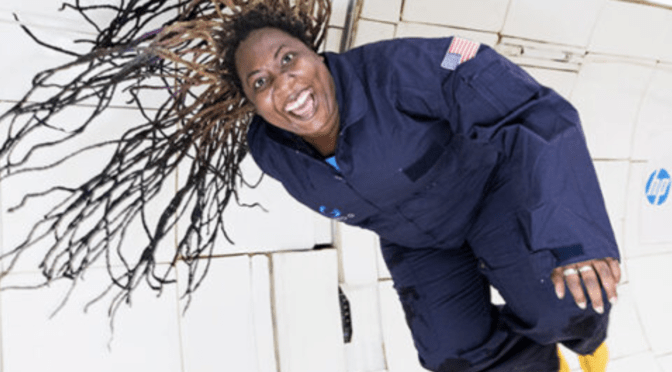LightHouse is excited to partner with SciAccess Initiative for the launch of a new program, Mission: AstroAccess. This is a program designed to bring diversity and inclusion to the STEM field in a study that will consist of a group of ten disabled people that will participate in a historic zero gravity parabolic flight. The flight’s blind, low vision, Deaf, and disabled volunteers will complete targeted tasks during the flight to help answer basic questions about how disabled people can safely and accessibly live and work in space.
“Space is not just part of humanity’s future – it is a place where we can rethink life on earth today,” says Mission: AstroAccess project lead, George Whitesides. “With this flight we hope to lay the foundation for future disabled space explorers.”
The goal of this mission is to bring together the largest and most diverse group of disabled crew members in a weightless environment, with the hopes to learn how to adapt and make accessible outer-space travel for disabled space explorers, scientists, and researchers. The Mission: AstroAccess parabolic flight is scheduled to take place on October 17, 2021, launching from Long Beach, California.
“Our mission is to change outer space and change the world. If you are a disabled person who is confident, enthusiastic, playful, and literally willing to float upside down to change the future, we are looking for you!” says Dr. Sheri Wells-Jensen, Associate Professor of Linguistics at Bowling Green State University.
So, what else does it take to be a participant in Mission: AstroAccess? You must be eighteen years of age or older, a speaker of English or American Sign Language, a resident of the United States, and you must be blind, low vision, Deaf, and/or someone who identifies as disabled. Applications are now open and will be accepted through August 15. Mission: AstroAccess will be hosting an informational webinar for all of those interested in applying for a mission slot on July 21. Until then, you can find more information about Mission: AstroAccess on the project website.
“This partnership is the first step in making the people who explore space look like all Americans,” said LightHouse CEO Bryan Bashin. “Blind people have been explorers, scientists and communicators for millennia, and Mission: AstroAccess and the LightHouse for the Blind – San Francisco will help move our contributions into space.”
We are excited and proud to be part of this inclusive change to the STEM field, and encourage all of our students, friends, and mentors within the blind community to apply for a mission slot. Together, the blind community can help make space inclusive and accessible for all.
For more information about the work that SciAccess Initiative does, please visit the SciAccess website. You can apply for a participant slot for Mission: Astro Access by following this link.

